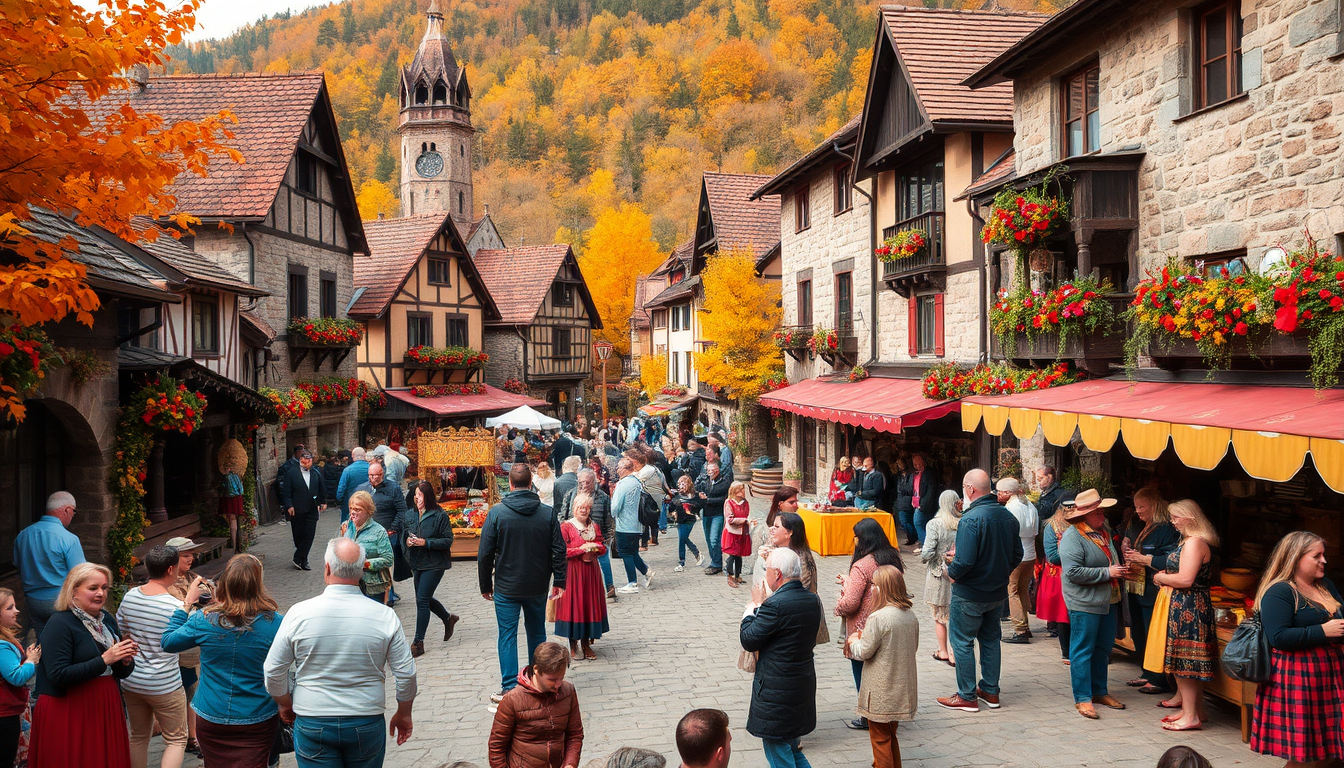
Festivals and traditions are the heartbeats of cultures worldwide. They hold the power to connect us with our ancestors, celebrate our communities, and welcome others into our cultural heritage. Local festivals offer a chance to see a society's most cherished beliefs, customs, and histories up close. From grand parades in Rio de Janeiro to humble village ceremonies in India, local festivals are a gateway to understanding and appreciating cultural diversity.
Why Festivals and Traditions Matter
Festivals are more than just parties or holidays. They are essential markers of identity, community, and history. Whether it's a deeply spiritual celebration or a community gathering to honor the seasons, festivals reflect the values and beliefs of those who celebrate them. Understanding these events allows you to appreciate the richness of a culture more fully, helping to break down stereotypes and bridge cultural divides.
- Preserving Heritage: Many festivals commemorate important events in a culture’s history, keeping stories and values alive for future generations.
- Social Connection: These gatherings bring people together, fostering a sense of unity and belonging.
- Personal Growth: Experiencing and understanding different customs broadens your worldview, helping you develop empathy and respect for others' ways of life.
Types of Local Festivals
The world’s festivals are as diverse as the people who celebrate them. However, they often fall into several categories:
- Religious Festivals: These celebrate sacred events, deities, and spiritual milestones. Examples include Christmas, Eid, and Diwali, as well as many local religious observances unique to particular regions or communities.
- Seasonal and Harvest Festivals: Celebrations like Thanksgiving, the Chinese Mid-Autumn Festival, and the Indian Pongal mark key points in the agricultural calendar.
- Historical Festivals: Many festivals commemorate important historical events, such as Independence Days, Bastille Day in France, or Victory Day in Russia.
- Cultural Festivals: Events like the Carnival in Brazil or Mardi Gras in New Orleans celebrate the spirit of a community, often including performances, foods, and customs unique to that culture.
Top Local Festivals Around the World
Holi (India): The Hindu festival of colors welcomes the arrival of spring. Participants throw colored powder and water at each other, symbolizing the triumph of good over evil. It’s a joyful event that embraces all, allowing even strangers to connect through vibrant colors.
La Tomatina (Spain): Held in the town of Buñol, this famous tomato-throwing festival began as a playful protest in the 1940s. Today, thousands gather to toss tomatoes in a massive, messy celebration.
Oktoberfest (Germany): Known worldwide as a beer lover’s paradise, Oktoberfest in Munich also offers traditional Bavarian foods, music, and dances. The festival is rooted in a royal wedding celebration from the early 19th century.
Carnival (Brazil): The Rio Carnival is the most famous, with vibrant costumes, samba music, and elaborate parades. The festival is rooted in Portuguese traditions and has grown into a massive global spectacle that showcases Brazil's diversity and creativity.
Dia de los Muertos (Mexico): Mexico’s Day of the Dead honors deceased loved ones. It’s a colorful celebration that includes intricate altars, special foods, and the iconic sugar skulls. Though it may seem solemn, the festival is a joyous celebration of life and remembrance.
Engaging with Local Festivals Respectfully
When attending a local festival as an outsider, it’s important to approach it with respect and openness. Here are some tips for responsible cultural immersion:
Research: Learn about the festival’s background, meaning, and customs. Understanding the significance of what’s being celebrated will enhance your appreciation and ensure you don’t inadvertently offend locals.
Dress Appropriately: Many festivals have specific dress codes or expectations, especially religious ones. Being mindful of attire shows respect for local customs.
Be an Observer First: If you’re unsure of the protocols, observe before participating. Watch how locals behave and join in gradually.
Ask Questions: Most locals appreciate respectful curiosity. Don’t hesitate to ask people about the meaning of certain activities or symbols.
Follow Local Customs: Some festivals may involve fasting, abstaining from alcohol, or specific behaviors. Respecting these customs shows that you value the culture and the traditions.
Contribute Where Appropriate: Some festivals welcome outsiders to bring small contributions, whether a flower for an altar or a donation to community festivities. Be sure to ask locals if this is suitable.
The Role of Festivals in Modern Society
In today’s fast-paced, globalized world, festivals serve as reminders of who we are and where we come from. They preserve traditions and help communities navigate the changes brought about by modernity. While technology and migration have influenced how we celebrate, festivals remain rooted in their historical and cultural origins, allowing communities to both honor the past and celebrate the present.
Moreover, local festivals have become an important aspect of tourism, attracting people from all over the world. This influx of visitors often brings economic benefits but can also threaten the authenticity of certain customs. Therefore, while participation is encouraged, it's crucial for visitors to engage in a way that respects and sustains the festival’s original intent and local values.
Conclusion
Understanding and celebrating local festivals is a powerful way to connect with diverse cultures and deepen our respect for humanity’s rich tapestry. These events go beyond colorful costumes, tasty foods, or spectacular dances; they are expressions of a community's values, stories, and aspirations. By participating in or learning about local traditions, we celebrate not only our differences but also our shared human experiences. In a world where people are more interconnected than ever, the appreciation of these traditions can help foster a greater sense of unity and mutual respect. So, the next time you encounter a local festival, take a moment to delve into its history and meaning—you may find it’s the most rewarding journey of all.




